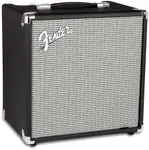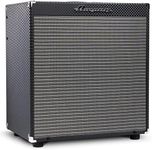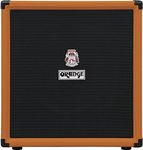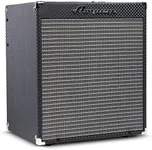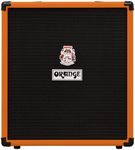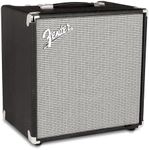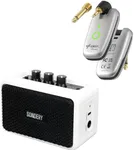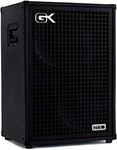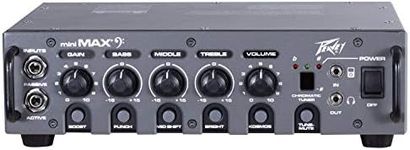Buying Guide for the Best Bass Guitar Amplifiers
Choosing the right bass guitar amplifier is crucial for achieving the sound you desire and ensuring your instrument's tone is properly amplified. Whether you're playing at home, in a studio, or on stage, the right amp can make a significant difference in your performance. To make an informed decision, it's important to understand the key specifications and how they align with your needs and playing style.Power (Wattage)Power, measured in watts, determines the amplifier's volume and headroom. Higher wattage amps (200W and above) are suitable for live performances and large venues, providing more volume and clarity. Medium wattage amps (50W-200W) are versatile for both small gigs and practice sessions. Lower wattage amps (below 50W) are ideal for home practice and studio recording, offering good sound quality at lower volumes. Choose based on where you'll be playing most often.
Speaker SizeThe size of the speaker, usually measured in inches, affects the amp's sound projection and tone. Larger speakers (15 inches) produce deeper bass and are great for live performances. Medium-sized speakers (10-12 inches) offer a balanced sound suitable for various settings. Smaller speakers (8 inches or less) are more compact and suitable for practice amps. Consider the type of music you play and the sound you prefer when choosing the speaker size.
PortabilityPortability refers to the ease of transporting the amplifier. Smaller, lighter amps are easier to carry and ideal for musicians who travel frequently or have limited space. Larger, heavier amps may offer better sound quality and volume but can be cumbersome to move. Think about how often you'll need to transport your amp and whether you need something compact and lightweight or if you can manage a larger, more powerful unit.
Tone ControlsTone controls allow you to adjust the bass, midrange, and treble frequencies to shape your sound. Basic amps may have simple controls, while more advanced models offer detailed EQ settings and additional features like built-in effects. If you prefer a straightforward setup, a basic amp with essential tone controls may suffice. For more versatility and sound customization, look for amps with comprehensive tone control options.
Inputs and OutputsInputs and outputs determine the connectivity options of the amplifier. Common inputs include instrument inputs and auxiliary inputs for playing along with music tracks. Outputs may include headphone jacks for silent practice, line outputs for recording, and speaker outputs for connecting additional cabinets. Consider what additional equipment you might use and ensure the amp has the necessary inputs and outputs to accommodate your setup.
Built-in EffectsSome amplifiers come with built-in effects like reverb, chorus, and overdrive, which can enhance your sound without needing external pedals. If you enjoy experimenting with different sounds and effects, an amp with built-in effects can be convenient and cost-effective. However, if you prefer using external pedals or have a specific effects setup, a simpler amp without built-in effects might be more suitable.
Construction QualityThe construction quality of an amplifier affects its durability and reliability. Look for amps with sturdy materials, solid build, and good craftsmanship. This is especially important if you plan to gig frequently or transport the amp often. A well-built amp will withstand the rigors of regular use and provide consistent performance over time. Consider reading reviews and checking the reputation of the brand for quality assurance.
